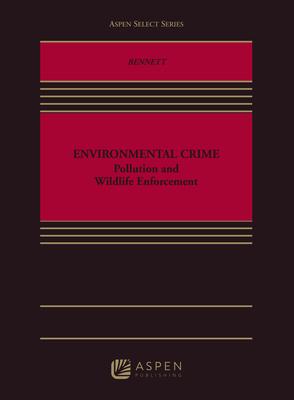Environmental Crime: Pollution and Wildlife Enforcement is a complete introduction to some of the newest and most complex criminal statutes within the federal penal system. Regardless of whether a student has any background in environmental law or the federal criminal process, he/she will learn of the policy origins of environmental criminal enforcement, the centrality of prosecutorial discretion, federal criminal standards and procedure, and the most important pollution and wildlife crimes within the United States Code. Coverage includes the Clean Water Act, Clean Air Act, RCRA, CERLA, FIFRA, the Lacey Act, the Endangered Species Act and its enforcement of CITES, the Migratory Bird Treaty Act, the Bald and Golden Eagle Protection Act, animal fighting statutes, and other commonly used conventional statutes in criminal prosecutions.
Professors and students will benefit from:
- Robust analysis of major pollution laws, their history, and why and how they are criminally enforced
- Broad examination of criminal laws governing wildlife protection and trafficking
- The role of international, state, and tribal laws in federal environmental enforcement
- Cutting-edge cases and case notes
- Numerous hypothetical case examples that link general federal criminal principles with environmental law
- A level playing field for students regardless of prior exposure to pollution and wildlife laws or criminal processes
- Interdisciplinary approach to the use of science in proving heightened burden of criminal environmental enforcement
